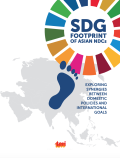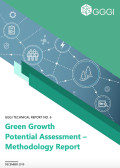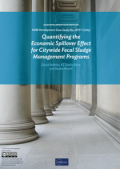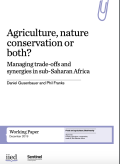
This report explores the linkages of Nationally Determined Contributions (NDCs) and the Sustainable Development Goals (SDGs) and captures if these linkages are evident in countries’ NDCs. It offers the first essential step in further strengthening institutional linkages at multiple governance levels for achieving SDGs and NDCs simultaneously and efficiently.

This report provides a detailed overview of the Green Growth Potential Assessment (GGPA) methodology in its current form and the extensive changes made to it since the first GGPA was conducted in 2015. These changes encompass all three stages of the assessment process: the preliminary assessment, consultation process, and final analysis.

This report introduces a model describing the full financial realities of fecal sludge management (FSM) projects; a methodology for quantifying the costs, direct effects, and economic spillover effects; and a toolkit to calculate their net present values and the overall program’s internal rates of return. This is demonstrated in the report through two citywide FSM programs in the Philippines. In both programs, economic spillover effects include improved tax revenues, property values, and health outcomes, and the present values of the direct effects and economic spillover effects exceed the original capital expenditure. This implies that when the policy makers set user charges to cover the recurrent costs such as operation and periodic maintenance, the FSM programs would be sustainable.

This paper summarises key concepts relating to trade-offs and synergies, including trade-off analysis and management, to make approaches and methods more accessible.
This report is the first-ever comprehensive scientific assessment of the air pollution outlook in the Asia and the Pacific region. It outlines 25 clean air measures that could achieve safe air quality levels for 1 billion people by 2030, with numerous benefits for public health, economic development, and the climate.
